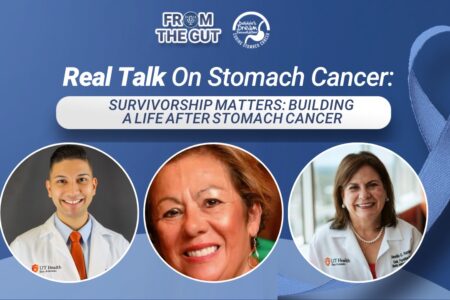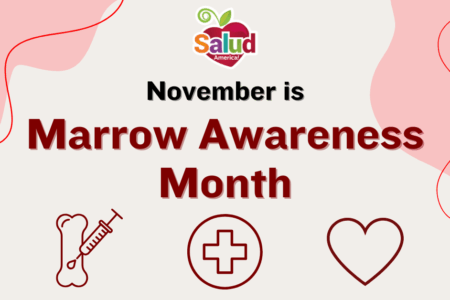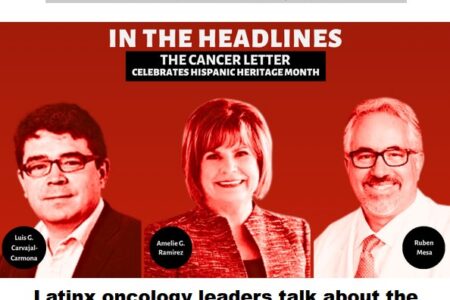
Share On Social!
This content is from the “Advancing the Science of Cancer in Latinos: 2024 Conference Proceedings.”
Inclusion in Action: Breaking Open the Leaky Pipeline to Create Pathways & Design Spaces that Improve Representation
Dr. Idalid “Ivy” Franco is works in the Department of Radiation Oncology at Brigham and Women’s Hospital and Dana-Farber Cancer Institute at Harvard Medical School.
The effect of oppression on workforce incorporation
Dr. Franco’s presentation began by looking at the context and long-standing hurdles to recruitment, retention, and professional success of a workforce that resembles the US population. This historical context started with American slavery, followed by years of segregation, laying a foundation of decades of judgement and mistreatment. This lies in the intersectionality of multiple social forces, identities, and ideological instruments through which power and anti-advantage are expressed and legitimized.
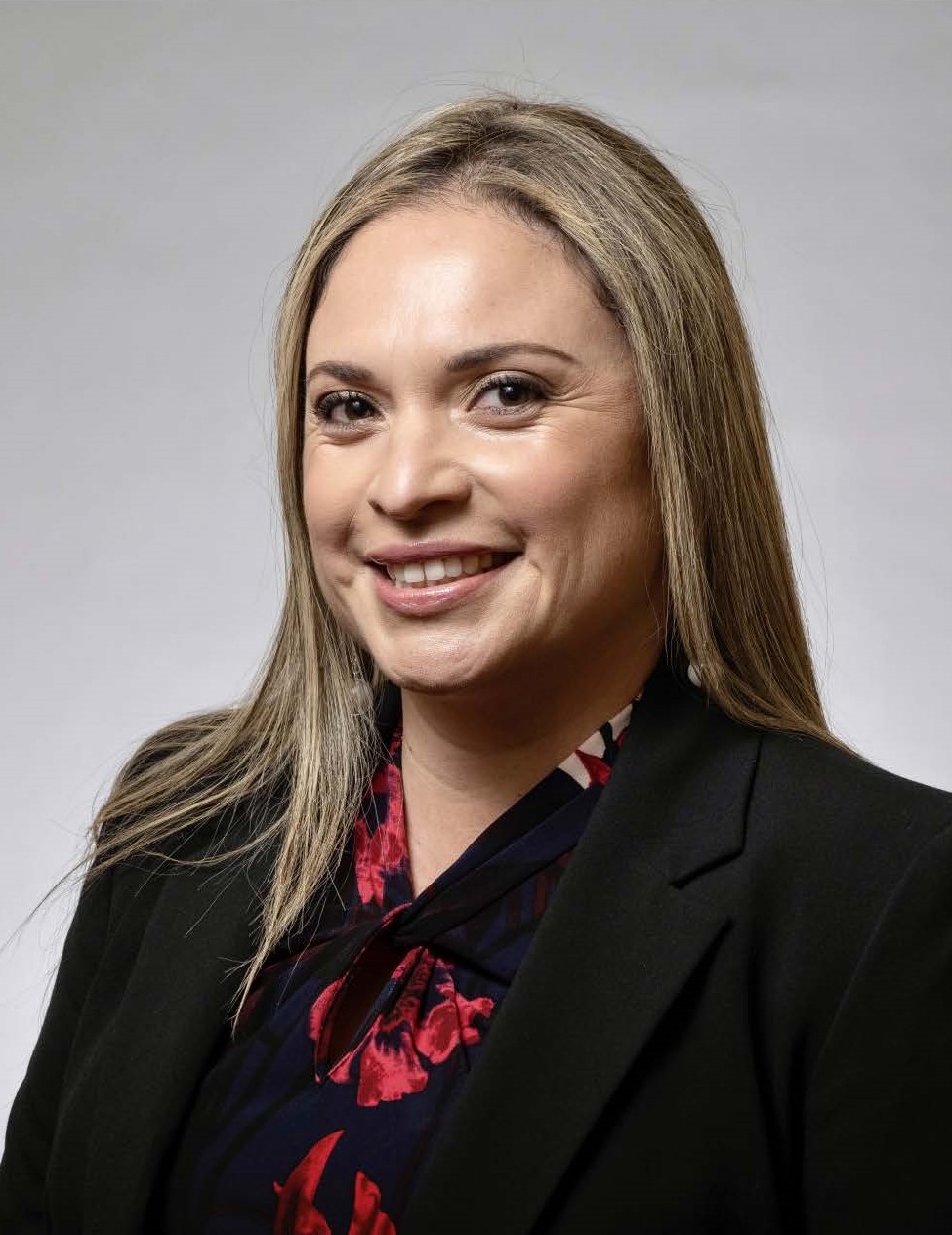
Involuntary perceptions that occurs automatically and unintentionally but nevertheless affects judgments, decisions, and behaviors. Research has shown involuntary perceptions can pose a challenge to recruiting and retaining a scientific workforce that looks like the US population. Microaggressions represent another challenge, and these come in various forms. Microassaults are verbal or non-verbal acts that attack a person’s group or identity or harm them through name calling, avoidance, and/or other actions. Microinvalidations are comments or actions that disregard, exclude, or dismiss the thoughts, feelings, and/or experiential reality of a particular group. Microinsults are subtle snubs or humiliations that convey a negative held belief, insensitivity, or a demeaning message about a person’s group identity. Microassaults, microinsults, and microinvalidations may be reflected in the policies and climate of the workplace.
Recurrent exposure to perceived mistreatment adversely impacts performance, mental health, achievement, self-esteem, physical health, and advancement. In academic medicine, mistreated groups are less likely to achieve advancement in salary promotions, leadership positions, funded grants, accepted publications, and academic rank. Historically there has been a lack of access to resources, education, understanding of the system, mentorship and sponsorship, promotion and recognition, and role models.
Based on 2023 data, Latino individuals have the lowest quotient of medical students enrolled at US medical schools compared to their corresponding percentage of the US 2023 population (12.7% vs 19.1%). These numbers are even worse in the field of oncology, where only 4.7% of practicing oncologists self-identify as Hispanic/Latino, a fact that is even more troubling in light of the fact that cancer has become the leading cause of death among Hispanic/Latino communities. This limit underscores the importance of creating pathways, spaces, and opportunities toward a more fair workforce centered around research and the clinical needs of a growing community.
What can be done?
Companies with greater variety are more likely to have higher financial returns. In order to foster this, practical steps include being a mentor, celebrating the achievements of individuals who may go unrecognized, volunteering, giving a seminar, building a team of individuals that look like the US population, and checking your own perceptions.
Latinos are not in federal research funding, publications, speaking engagements, editorial boards, and leadership roles. One way to participate in the solution is to be an Upstander, not a Bystander. This means individuals must move beyond providing support in private, as bystanders, to responding to the perpetrator at times in public, as an upstander.
At the community, organizational, and policy level, interventions must include education for leaders and mentors; resources for navigating isolation, hypervisibility, and long-standing mistreatment; and providing support for local and national funding opportunities. Dr. Franco shared some initiatives that are already underway, including the intentional integration of a workforce that looks like the population of the US in online educational materials, the Radiation Oncology Intensive Shadowing Experience (RISE), infographics for patient education on radiation oncology, and the Association of Residents in Radiation Oncology’s (ARRO) EISC.
Dr. Franco ended by recommending action. Be intentional. Ask, “What voices are missing and how can we be more [incorporated] with our language and participation?” Foster a community and belonging where differing identities are respected, individuals feel safe to bring their authentic selves, and people are empowered to reach their full potential. Build programs and interventions that optimize workforces that look like the US and that are scalable, sustainable, and have a measurable impact., Finally, figure out what your privilege is, and use it to help others.
Increasing the Number of Latino Oncologists and Strategies to Effectively Recruit Latino Oncologists
Dr. Gladys I. Rodriguez is a Medical Oncologist at the START Center for Cancer Care.
Disparities in medical oncology
Dr. Rodriguez began by discussing work done with colleagues at the American Society of Clinical Oncology (ASCO) in 2014 assessing the oncology workforce landscape. This work revealed that although 16.3% of the population at the time was Latino, only 7.4% of medical school graduates were Latino, and only 4.1% of medical oncology practicing physicians were Latino. In 2020, that representation had not improved, with Latino individuals 18% of the US population and only 3% of practicing oncologists. This discrepancy can be partially traced to the low number of Latino applicants to medical schools. In 2018-2019 only 6.2% of applicants were Latino, compared to 8.4% Black applicants, 21.3% Asian applicants, and 46.8% White applicants.
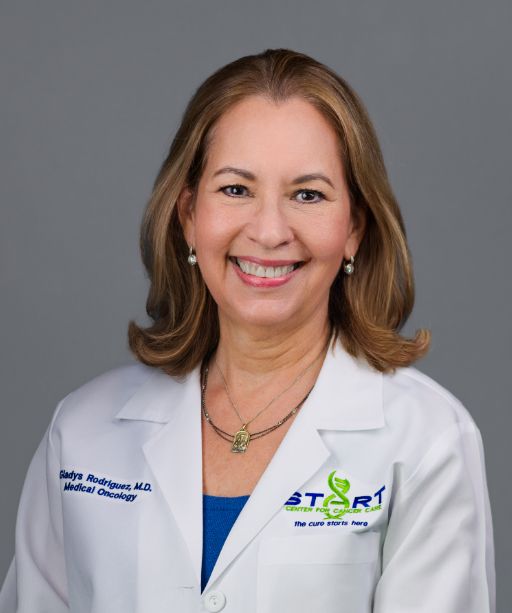
Under utilization in medical oncology has real-world consequences, with very little improvement in cancer deaths observed among Latino patients since 1990. This is in contrast to relatively large improvements for non-Hispanic Black and non-Hispanic White patients. In 2022, ASCO published a snapshot of the US medical oncology workforce, with a special focus on oncologists who identify as Hispanic or Latino. Although only 4.7% of US oncologists are Latino, 9.3% of new cancer cases are in Latino patients. Furthermore, of these Latino oncologists, 22.0% are nearing retirement, while only 13.9% are 40 years of age or younger.
ASCO’s action plan
In order to combat the differences seen in medical oncology, ASCO has formulated an action plan consisting of 3 steps. First, recruitment to clinical trials must more accurately look like the population of patients with cancer. Only 6% of participants in cancer clinical trials are Latino, a problem not seen in cardiovascular clinical trials. Next, the oncology workforce must better reflect the rest of the population and be well equipped to deliver high quality care. Finally, challenges to accessing care must be decreased, and high quality, fair care must be delivered to all patients with cancer.
ASCO’s programs are intended to build a more incorporated pipeline and longitudinal support for the oncology workforce. The Oncology Summer Internship, for example, is a 4-week immersive oncology program serving rising second year students from populations not found in medicine at partnering medical schools to enhance exposure to the field of oncology. There is another program providing financial support for US medical students from populations not usually found in medicine. Recipients participate in a minimum 4-week clinical or clinical research rotation and are paired with a mentor who oversees the rotation and provides ongoing feedback and academic guidance.
Two additional programs include an annual meeting. The Annual Meeting Research Award allows non-oncology physician residents from populations not included in medicine who are interested in pursuing a career in oncology to attend the ASCO Annual Meeting. At the meeting, they present their research at the Abstract Forum, meet leading oncologists, and learn more about career options in the field. The mentoring program fosters relationships between mentees and mentors, who provide career and educational guidance virtually and serve as a professional resource. Career development webinars and virtual situational mentoring are also components of the program.
ASCO also provides Research Awards. These include Young Investigator Awards (YIA), Career Development Awards (CDA), Advanced Clinical Research Awards (ACRA), and more. A newer award, established by Dr. Rodriguez and colleagues in 2021, is the Women Who Conquered Cancer Latina Young Investigator Award. In 2023, the Robert A. Winn Diversity in Clinical Trials Program was established.
These awards, along with the many provided by ASCO and others, make a positive difference in boosting more overlooked populations in the field of oncology. This increased representation can lessen the differences experienced by Latino cancer patients.
By The Numbers
142
Percent
Expected rise in Latino cancer cases in coming years

